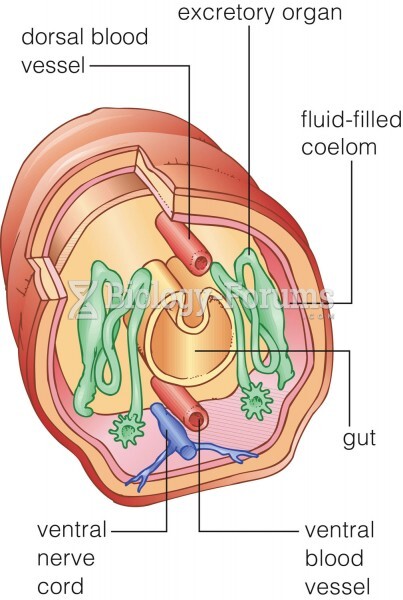|
|
|
In 1844, Charles Goodyear obtained the first patent for a rubber condom.
Stevens-Johnson syndrome and Toxic Epidermal Necrolysis syndrome are life-threatening reactions that can result in death. Complications include permanent blindness, dry-eye syndrome, lung damage, photophobia, asthma, chronic obstructive pulmonary disease, permanent loss of nail beds, scarring of mucous membranes, arthritis, and chronic fatigue syndrome. Many patients' pores scar shut, causing them to retain heat.
Most fungi that pathogenically affect humans live in soil. If a person is not healthy, has an open wound, or is immunocompromised, a fungal infection can be very aggressive.
The first oncogene was discovered in 1970 and was termed SRC (pronounced "SARK").
If all the neurons in the human body were lined up, they would stretch more than 600 miles.
 Model of a sequential study in which two cohorts were followed beginning at age 20. One cohort was f
Model of a sequential study in which two cohorts were followed beginning at age 20. One cohort was f
 The Six Major Divisions of Biopsychology, with Examples of How They Have Approached the Study of ...
The Six Major Divisions of Biopsychology, with Examples of How They Have Approached the Study of ...





